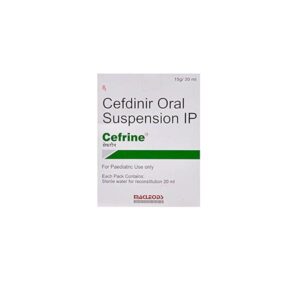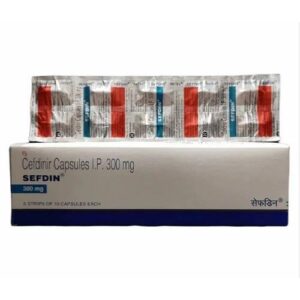CEFDINIR
CEFDINIR: Cefdinir is an antibiotic used to treat various bacterial infections. It belongs to the class of drugs known as cephalosporins. Cefdinir is commonly prescribed for respiratory tract infections, such as bronchitis, pneumonia, and sinusitis, as well as skin and soft tissue infections.
The mechanism of action of cefdinir involves inhibiting the synthesis of the bacterial cell wall, leading to the disruption of the cell wall structure. This ultimately results in the death of the bacteria.
The usual recommended dose of cefdinir for adults and children over the age of 12 is 300 mg taken twice daily or 600 mg once daily for 5-10 days, depending on the type and severity of the infection. The dose may be adjusted in individuals with kidney impairment.
Common side effects of cefdinir include diarrhea, nausea, vomiting, abdominal pain, headache, and rash. These side effects are generally mild and resolve on their own. However, it is important to contact a healthcare provider if severe or persistent diarrhea occurs, as it may indicate a more serious infection called Clostridium difficile-associated diarrhea.
Like other antibiotics, cefdinir can also cause allergic reactions, such as hives, itching, swelling, and difficulty breathing. If any signs of an allergic reaction occur, medical attention should be sought immediately.
It is essential to take the full course of cefdinir as prescribed by the healthcare provider, even if symptoms improve before completing the treatment. Premature discontinuation of antibiotics may lead to the survival of bacteria and the potential development of antibiotic resistance.


